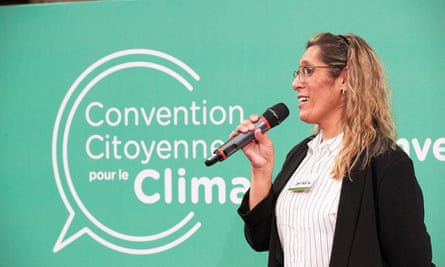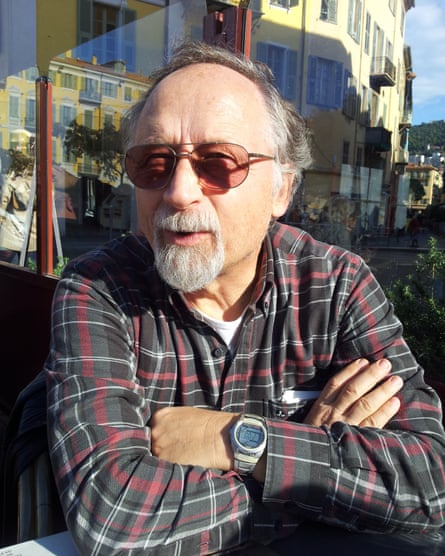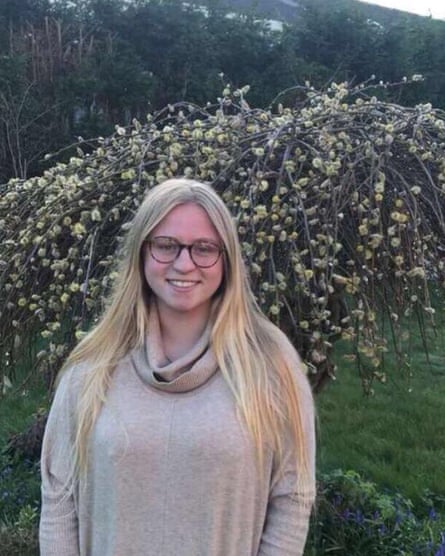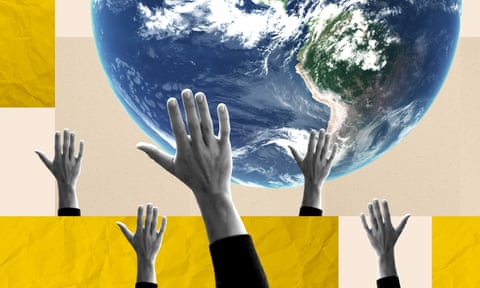Angela Brito was driving back to her home in the Parisian suburb of Seine-et-Marne one day in September 2019 when the phone rang. The 47-year-old caregiver, accustomed to emergency calls, pulled over in her old Renault Megane to answer. The voice on the other end of the line informed her she had been randomly selected to take part in a French citizens’ convention on climate. Would she, the caller asked, be interested?
“I thought it was a real prank,” says Brito, a single mother of four who was born in the south of Portugal. “I’d never heard anything about it before. But I said yes, without asking any details. I didn’t believe it.’”
Brito received a letter confirming her participation but she still didn’t really take it seriously. On 4 October, the official launch day, she got up at 7am as usual and, while driving to meet her first patient of the day, heard a radio news item on how 150 ordinary citizens had been randomly chosen for this new climate convention. “I said to myself, ah, maybe it was true,” she recalls.
At the home of her second patient, a good-humoured old man in a wheelchair, the TV news was on. Images of the grand Art Déco-style Palais d’Iéna, home of the citizens’ gathering, filled the screen. “I looked at him and said, ‘I’m supposed to be one of those 150,’” says Brito. “He told me, ‘What are you doing here then? Leave, get out, go there!’”
Brito had two hours to get to the Palais d’Iéna. “I arrived a little late, but I arrived!” she says.
Over the next nine months, Brito would take part in the French citizens’ convention for the climate, touted by Emmanuel Macron as an “unprecedented democratic experiment”, which would bring together 150 people aged 16 upwards, from all over France and all walks of French life – to learn, debate and then propose measures to reduce greenhouse gas emissions by at least 40% by 2030. By the end of the process, Brito and her fellow participants had convinced Macron to pledge an additional €15bn (£13.4bn) to the climate cause and to accept all but three of the group’s 149 recommendations.

The climate convention made headlines with recommendations such as making ecocide a crime; enshrining climate goals into the French constitution; banning domestic flights on journeys that can be done by train in under two and a half hours; cutting VAT on train tickets and making a vegetarian option compulsory in public catering. But it also showed how, against a collapse of trust in traditional politics, directly involving citizens could improve community cohesion and reinvigorate democracy both locally and nationally. Macron pledged to put the key proposals drafted by Brito and her fellow citizens to a referendum by 2021.
The French revolution may have introduced the modern concept of citizen democracy to Europe. But the Greeks invented the citizens’ assembly: as far back as 621BC the ecclesia, or popular assembly of ancient Athens was a forum in which any male citizen regardless of class could participate.
Now, with a pandemic-induced economic and social crisis looming, this ancient democratic tool is being updated for the 21st century. Towns, cities and regions across France are increasingly turning to their citizens to help steer them towards a more egalitarian future.
Last month around 100 citizens from the Occitane region – spanning the cities of Toulouse, Montpellier and Carcassonne – completed a convention aimed at “improving the lives of inhabitants”. It was France’s first regional citizens’ convention.
“We are a large region, so we must make sure we are not disconnected and that politics is adapted to the feelings and desires of the people,” says Carole Delga, president of Occitane and a Socialist party MP.
Ahead of regional elections due next spring, other cities are following suit. Nantes is convening an assembly between this month and February 2021, in which 80 locals will assess the impact of the Covid-19 pandemic, record their concerns and priorities and outline courses of action. Nancy plans to convene at least 200 residents in January, Poitiers aims for one in September 2021, and Marseille is considering the creation of a “parliament of the future”, bringing together residents, politicians and experts to forge policy.

“Conventions intervene in the political process so that ordinary citizens can be heard and can counteract powerful interest groups,” says Loïc Blondiaux, a professor of political science at the University of Paris 1 Panthéon-Sorbonne and a member of the climate convention’s governance committee. “With the collapse of democracy as we know it, the political system will have to change in the coming years. What conventions do is they represent all citizens and they re-legitimise the process of decision-making.”
Occitane’s citizens covered a broad range of topics including the environment, transport, the digital economy, healthy food, and the rural/urban divide, and despite being hamstrung and truncated by the pandemic has been heralded as a success.
Detailed discussions were conducted in smaller breakout groups, with evidence provided by independent experts and votes on proposals such as encouraging companies to hire graduates, putting local railway lines back into circulation, helping farmers to market their products locally and revitalising ailing town centres.
“We can’t become experts in a matter of weeks, but there were many things I learnt,” says Gérard Pithon, 70, a retired social psychology teacher from Montpellier who took part in the convention.

“It was a very enriching experience,” adds Clarisse Pintat, 31-year-old Franco-Brasilian chef from Toulouse. “It’s the closest I’ve been in my life to political power. It gave me, to a certain extent, hope in the dynamics of democracy.”
This sentiment was echoed by Brito of the climate convention, who says her initial disbelief was due to the fact “politics doesn’t usually give a voice to people like me”.
The spread of citizens’ conventions in France can be seen partly as a response to the gilets jaunes crisis, which was triggered by a popular backlash against fuel taxes linked to climate policy and morphed into a more complex grassroots revolt against a range of social and economic pressures and inequalities.
“The French [political] model is very presidential and majoritarian,” says Camille Bedock, a sociologist at the University of Bordeaux’s Emile Durkheim Centre. “There is a big gap between expectations of what democracy should be and the reality – it’s a much greater gap than in other countries. That was a significant factor in the [emergence of the] gilets jaunes.”
President Macron’s initial reaction to the gilets jaunes protests was to launch a series of nationwide grands débats about public policy. This failed, says Bedock, because participation was self-selecting and it came to represent “the opposite of the gilets jaunes”. Participants were older, richer and seen as more privileged. “By ensuring citizens’ conventions are based on random selection and that they reflect society, this issue was solved,” she says.
For many,the inspirational modern example is Ireland’s 2016-2018 citizens’ assembly, which broke years of political deadlock, leading to a referendum and repeal of the country’s longstanding constitutional ban on abortion.
“It was a very tricky issue,” says Jane Suiter, who worked as a senior research fellow on the Irish citizens’ assembly. “But I think it worked because the public sees that it’s everyday people – the unemployed, bus drivers, all kinds of society – who decide. They aren’t the usual suspects, the talking heads on television. That tends to increase trust.”
Belgium’s German-speaking region last year set up a permanent 24-person citizen’s council, chosen by lottery, to work alongside the region’s parliament. Its members in turn organise citizens’ assemblies of up to 50 people, which meet for three weekends over three months on specific policy issues chosen by the citizens’ council.

In an era of extreme polarisation on everything from Brexit, immigration and secularism to the Covid-19 response – some believe citizens’ conventions are a priceless tool.
“They can help resolve issues that usually polarise people,” says George Zarkadakis, author of Cyber Republic, a new book exploring how to make democracies more inclusive in the digital age. “What’s happened with Covid-19 is that it’s been polarised and politicised. There are people opposed to and in favour of lockdown, but if you look at the arguments they aren’t really scientific. Citizens’ conventions offer de-polarisation by removing ulterior motives.”
Zarkadakis argues that in future citizens’ conventions will also hugely benefit from the deployment of technologies such as crypto-currencies, artificial intelligence and blockchain – which would in turn give them greater autonomy, better learning tools and smart contracts that will make it easier for political pledges to be held to account. “Technology can help that transformation,” he says.
Yet, questions remain, from relatively technicalities to more fundamental issues about legitimacy and whether citizens’ conventions can have genuine political bite.
Claudia Chwalisz, main author of an OECD report published in June, which studied nearly 300 examples of citizens’ assemblies says that participants and organisers often complain about a basic lack of time and funding – the French climate convention was, for example, held over 10 three-day sessions, but Occitane’s lasted just 10 days.
There are thorny issues too, she adds, including how to select participants fairly, how to select the experts that assist them, and how to ensure governments and public authorities commit to genuine action. This point was underlined when on 12 October, the 150 citizens of the climate convention, who despite acknowledging some progress, wrote a tense letter demanding Macron “reaffirm formal and public commitment in favour of the unfiltered examination of [their] proposals”.
“It’s a work in progress,” says Chwalisz. “They cannot completely replace the traditional representative system. But we must look to the future: how do we institutionalise these forms of public deliberation so that citizens can play a role?”

Others are concerned that without guarantees and funding put in place by authorities, the role of citizens’ conventions could be superficial. A UK citizens’ assembly on climate which met in the spring of 2020 put forward a range of recommendations but, unlike in France, there is no obligation on the UK parliament or government to even consider them.
“You need a legal contract between the politicians and the citizens, otherwise I fear that they will remain marginal and their effect will be only cosmetic,” says Prof Blondiaux. “And there’s a risk of politically marginalising these conventions if there’s not enough support to ensure the wider public understands and agrees with the process.”
For all the caveats, many of France’s participants now eulogise the assemblies as a step into a brave new world of togetherness.
“I learnt a lot of things,” says Eloise, a 17-year-old from Dunkirk who was one of the six minors who took part in the climate convention. “I learnt about the environment. I learnt how to listen to other people. I learnt how to debate. But the most important thing I learnt was the force of collective intelligence. We must invest in it.”
